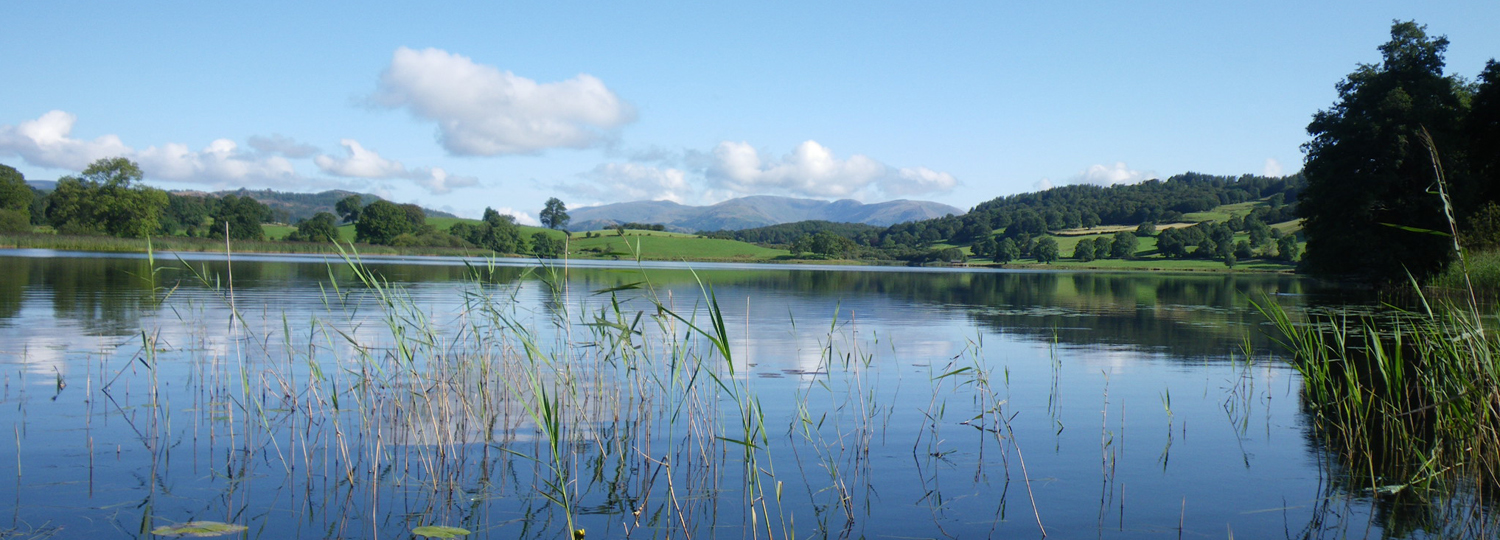Key findings from the first PLURALAKES stakeholder workshop
UKCEH is part of a new EU-funded project bringing together multiple perspectives to shape a sustainable future for lake ecosystems. Dr Heather Moorhouse tells us more...
The Nature Futures Framework, developed by the Intergovernmental Science-Policy Platform on Biodiversity and Ecosystem Services (IPBES), helps keep nature at the heart of ecosystem management by considering the different ways people value and interact with the natural world. In May this year, guided by this Framework, we joined partners and stakeholders at the first workshop for the PLURALAKES project, held in the Lake District National Park, UK.
PLURALAKES is an EU-funded Water4All project which aims to improve the health of lakes by including diverse perspectives. It looks at lakes not only as ecosystems but as places with cultural, social, and economic importance. PLURALAKES explores what kinds of future we want for our lakes and practical ways on how we can achieve this.
The Lake District National Park is one of three catchment areas in Northern Europe serving as case studies for the project. Lessons learned will guide both local lake management and broader policies across Europe and beyond.
Participants from various sectors joined the PLURALAKES team (from Finland, UK, Sweden and the Netherlands) in a variety of activities exploring positive futures for the lakes of the Lake District National Park. The workshop was also attended by local graphic illustrator Bethan Thorsby (Sporadic Illustration), who captured the discussions throughout the day via sketches and notes.
Guided by the Nature Futures Framework, participants were split into three groups based on which of the framework’s three core values they most closely aligned and were asked to create names that captured those values.
Bethan illustrated these values and names, capturing the spirit of each group’s vision.
-
The first group “Harmonious Lakes” was most closely aligned with relational values and seeing “nature as culture”, eg, how our identities, traditions and relationships are tied to nature. This value is recognised most in indigenous communities and practice.
-
The second group, aligned with “nature for nature”, called themselves “Functioning Fells, Living Lakes”. They wanted to see nature restored according to its ability to function, not just for the benefit of society or a few key species, but to ensure resilience to a changing world under climate change.
-
The final group, “Reconnecting People to Restored Nature”, was most closely aligned with “nature for society” and focused on improving the lakes and their catchments alongside improving public access and education.
This creative approach helped participants with imagining a shared vision for building a sustainable future for lakes. Namely, increasing societal values of respect, responsibility and connection, as well as restoring shoreline and lake ecosystems, and the diversity and abundance of freshwater flora and fauna.
The key tension between improving nature and its resilience, alongside enabling public access and the provision of other ecosystem services, is a common challenge identified when using the Nature Futures Framework (see Schmitt et al, 2025 The perspective of youth: envisioning transformative pathways and desirable futures for people and nature).
Future workshops and management scenarios undertaken as part of PLURALAKES will help to navigate these tricky pathways and determine where compromise might be needed most.
Broadening the conversation
While this workshop brought together freshwater managers, campaigners and researchers, voices from landowners, tourist and agricultural representatives were missing from the conversation. The PLURALAKES team is committed to making sure future visions for our lakes reflect the needs of a wider range of people. That’s why we’re developing different opportunities to invite broader participation with the project.
Read the full workshop report here.
If you live or work in the Lake District and want to find out how you can get involved in the project, email Dr Heather Moorhouse.

